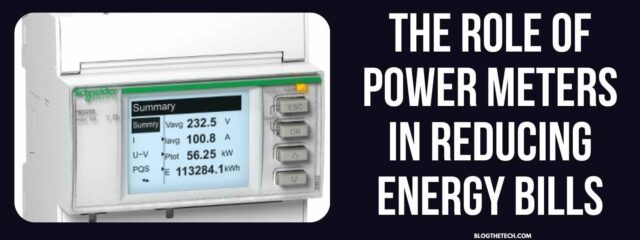In a world increasingly defined by sustainability and energy efficiency, reducing energy consumption has become a key priority for both residential and commercial users. One of the most effective tools in achieving this goal is the power meter, a device designed to measure electrical energy consumption in real time or over specified periods. With rising energy costs and growing awareness of carbon footprints, power meters play a crucial role in monitoring, analysing, and ultimately reducing electricity bills.
Understanding Power Meters and Their Functionality
Power meters, also known as energy meters or electricity meters, are devices that record the amount of electrical energy consumed by a residence, business, or machine. While traditional meters provide cumulative consumption data, modern digital or smart power meters offer far more sophisticated features. These include real-time monitoring, time-of-use analysis, historical consumption tracking, and integration with IoT (Internet of Things) systems for automated responses to energy usage patterns.
By providing detailed visibility into consumption patterns, power meters enable users to make informed decisions about their energy usage. For instance, identifying high-energy-consuming appliances and peak usage times allows homeowners and businesses to adopt load-shifting strategies or invest in energy-efficient alternatives.
Reducing Bills Through Enhanced Energy Management
One of the primary benefits of power meters is the potential to lower energy costs through active management. Energy usage data enables users to:
- Identify Inefficiencies: Real-time insights can highlight overuse or wasteful energy practices, such as machines left running unnecessarily or poorly maintained HVAC systems.
- Adjust Usage Behaviour: With a clear understanding of when and how energy is consumed, users can shift usage to off-peak hours or reduce unnecessary consumption.
- Set Energy-Saving Goals: Many digital power meters come with software that allows users to set benchmarks and track progress toward reduction targets.
- Perform Energy Audits: Detailed consumption logs can assist in formal audits, helping to justify retrofitting, upgrading equipment, or other energy-saving investments.
Households that used smart power meters combined with feedback mechanisms were able to reduce their electricity consumption. The effectiveness was further enhanced when the users received tailored advice and behavioural nudges based on their usage patterns.
Applications in Commercial and Industrial Settings
While residential savings are significant, the impact of power meters in commercial and industrial settings can be transformative. Manufacturing plants, data centres, and office complexes often operate with high energy demands. In these contexts, power meters serve as essential components of an energy management system (EMS), allowing facilities managers to:
- Monitor circuit-level energy usage
- Schedule maintenance for underperforming systems
- Implement demand response strategies
- Track energy use per output unit (e.g., kWh per product manufactured)
Power meters are a key component in helping industries achieve energy efficiency benchmarks. Facilities that employ smart metering systems have observed improved load management, optimised production cycles, and significant cost savings.
Supporting Sustainability and Compliance
In addition to cost savings, power meters play a crucial role in supporting broader sustainability goals and ensuring regulatory compliance. As governments worldwide enforce stricter energy regulations and reporting standards, the ability to provide precise, verifiable consumption data is crucial. Modern power meters facilitate this by offering automated data logging and report generation, making it easier for organisations to meet mandatory energy disclosure and reduction targets.
Furthermore, by integrating with renewable energy sources such as solar or wind, power meters help optimise on-site generation and storage, further reducing dependence on grid electricity and enhancing energy resilience.
The Future Ahead
Incorporating power meters into energy infrastructure is not merely a technical upgrade; it is a strategic investment in the future. It is a strategic investment toward financial savings and environmental responsibility. Whether in a household, office, or industrial facility, power meters enable informed decision-making, promote efficient energy use, and support sustainability initiatives.
However, to fully capitalise on these benefits, it is essential to partner with reputable power meter manufacturers and solution providers. Established brands offer not only precision-engineered devices but also the technical expertise, support, and integration capabilities necessary to implement effective energy monitoring systems. Choosing a trusted partner ensures greater accuracy, reliability, and long-term value, ultimately supporting smarter energy management and cost efficiency.
As energy prices continue to rise and the demand for greener operations grows, the adoption of advanced power meters will be a defining factor in achieving meaningful reductions in energy bills and environmental impact.











